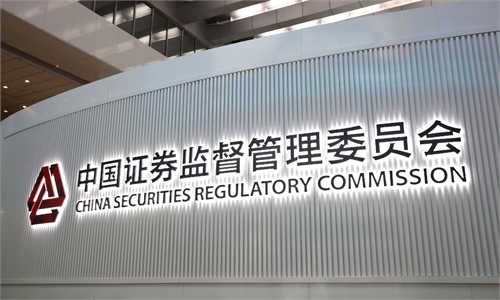International capital flows into A-share market for opportunities amid China’s stable economic recovery

Stock market Illustration: VCG
International capital is flowing into the Chinese capital market at a rapid speed, with net inflows of funds through northbound trading, or money invested from the Hong Kong Special Administrative Region into the Chinese mainland through the stock connect programs, so far this year reportedly exceeding the total in 2023, as the valuations of China's capital market are relatively low and offer abundant opportunities.
The net year-to-date inflow of northbound capital reached 70.6 billion yuan ($9.95 billion) as of Friday, exceeding the total of 43.7 billion yuan in 2023.
In February alone, northbound capital inflows stood at 60.7 billion yuan, the highest level in about a year, the Shanghai Securities News reported on Monday, citing market data provider Choice.eastmoney.com.
Foreign financial institutions have been active in launching new products in China. Recently, US-based fund manager AllianceBernstein Fund Management Co launched its first public fund product in China on March 11.
China's stock market is now highly attractive from a valuation standpoint, making A-shares particularly appealing, Zhu Liang, investment director of AllianceBernstein Fund Management Co, said in a note sent to the Global Times.
Listed companies are expected to maintain profit growth in 2024. It is estimated that the earnings per share of A-shares will increase about 17 percent this year. If valuation multiples remain unchanged, the profit growth suggests that the Chinese stock market should perform quite well, Zhu said.
On Monday, three major stock indexes hit new highs for 2024, with more than 4,500 A-share issues gaining.
The Shanghai Composite Index rose by 0.99 percent to 3,084.93 points and the Shenzhen Component Index was up 1.46 percent to 9,752.83 points. The tech-heavy ChiNext board jumped 2.25 percent to 1,926.40 points.
The sound economic performance in the first two months as well as a strong new-energy sector contributed to the A-share rebound on Monday, Yang Delong, chief economist at the Shenzhen-based First Seafront Fund Management Co, told the Global Times.
"As macroeconomic policies continue to take effect, China's stable economic recovery will be sustained. Accordingly, a structural bull market is likely for A-shares," Yang said, calling for confidence and patience related to the country's capital market.
To further tighten regulation of the domestic capital market and safeguard investors, the China Securities Regulatory Commission (CSRC) said on Friday that it will issue four guidelines to boost the supervision of IPOs, listed companies, brokers and public offering funds, while also improving its own capacity.
Li Chao, a vice chairman of the CSRC, said at a news conference on Friday that the formulation of the documents is aligned with the principles of strengthening regulation, preventing risks and promoting high-quality development.
Recently, the People's Bank of China, the country's central bank, and the National Financial Regulatory Administration (NFRA) separately held seminars with experts and scholars to solicit advice on the high-quality development of the country's financial sector for the building of a country with a strong financial sector.
The NFRA will resolutely follow the spirit of the Central Financial Work Conference and the two sessions, and carry out regulation using both "teeth and thorns" to ensure that no systemic risks arise, said Li Yunze, head of the administration.
Tan Xiaofen, an expert at the School of Finance at the Central University of Finance and Economics, suggested reasonable controls for IPOs and refinancing while increasing the supply of quality listed companies so as to ensure the overall quality A-share companies.
"In addition, we should introduce medium- and long-term capital," Tan told the Global Times on Monday, noting that more trading reforms are necessary in reducing investors' costs.
Given the continuous rebound in the A-share market, a likely reversal in the US Federal Reserve's monetary policy and appreciation expectations for yuan-denominated assets, foreign capital is expected to continue to flow into yuan assets in 2024, Yang said.



